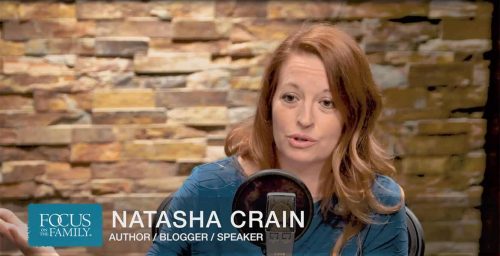LnRiLWNvbnRhaW5lciAudGItY29udGFpbmVyLWlubmVye3dpZHRoOjEwMCU7bWFyZ2luOjAgYXV0b30gLndwLWJsb2NrLXRvb2xzZXQtYmxvY2tzLWNvbnRhaW5lci50Yi1jb250YWluZXJbZGF0YS10b29sc2V0LWJsb2Nrcy1jb250YWluZXI9IjViMzk5NDY4NjliMjI2MTM0ODU4ZmM2OTExZDAzZjNjIl0geyBiYWNrZ3JvdW5kOiByZ2JhKCAwLCAxMDMsIDEzMCwgMSApO3BhZGRpbmc6IDFweCAyNXB4IDE1cHggMjVweDsgfSBAbWVkaWEgb25seSBzY3JlZW4gYW5kIChtYXgtd2lkdGg6IDc4MXB4KSB7IC50Yi1jb250YWluZXIgLnRiLWNvbnRhaW5lci1pbm5lcnt3aWR0aDoxMDAlO21hcmdpbjowIGF1dG99IH0gQG1lZGlhIG9ubHkgc2NyZWVuIGFuZCAobWF4LXdpZHRoOiA1OTlweCkgeyAudGItY29udGFpbmVyIC50Yi1jb250YWluZXItaW5uZXJ7d2lkdGg6MTAwJTttYXJnaW46MCBhdXRvfSB9IA==
When you hear the words, “4X4,” you likely think of a rugged, dependable, fun, and an excellent vehicle for facing challenges. I’d say those are also characteristics of someone who can be a tremendous encouragement to your child: A mentor. In most cases, finding a mentor means finding a man or woman who can step into your son or daughter’s life. He or she is not replacing you but adding, reinforcing, and fleshing out things you’ve been pouring into their life.
I say that because a mentor named Doug Barram changed my life. Despite my mother’s best efforts, my life was headed “off-road” in terrible ways. Doug showed up and was instrumental in bringing me to faith. But he also bridged a gap that was widening in my life between a positive and negative path. Doug became that mentor and role model I desperately needed. He was someone I know my single-parent mother was tremendously grateful for as well.
Let’s go 4X4ing as we look at why your child can benefit from a great mentor and ways that you can go about finding a mentor. You may have a high schooler, junior higher, or grade-schooler. It’s okay to start early. But let’s begin with four reasons your child needs a great mentor.
4 Reasons Why Your Child Needs to Find a Mentor
1. A Mentor Can Be Great at Seeing Your Child’s Heart.
When it came to choosing someone with great potential, a wise prophet named Samuel sought God’s guidance. The Lord told Samuel, “… God sees not as man sees, for man looks at the outward appearance, but the Lord looks at the heart” (1 Samuel 16:7). Great mentors, inspired by such a perspective, can see beyond the present to the potential in a person. Maybe your child’s current grade or swim times aren’t breaking records. But a mentor can see things that could be there in a child’s life — just like Doug saw the potential for dedication, compassion, and hard work in my life.
2. A Mentor Can Be a Great Connection Point Between Younger and Older People.
You will want to look for a mentor who seems to be able to talk your language and the language your child speaks. Perhaps the ability to talk to both of you is because they may be in that gap between you and your child. But I think there’s something else as well. Pascal’s definition of a great person was not someone stuck at one extreme, but someone who could touch both extremes. (C.S. Lewis echoes this view of greatness with his thoughts on the topic.) Look for a comfortable, engaging, and confident person who talks with both your child and you.
3. A Mentor Can Picture a Special Future for Your Child.
When I first met Doug Barram, I wasn’t a Christian and, I’m ashamed to say, I hated my father. He bailed out when we were two months old. We didn’t hear a word from him for decades, nor did he provide any help for my rheumatoid arthritic mother. She struggled mightily to raise three sons, all under age 3, when he left.
When Doug showed up, he became a picture of someone who didn’t walk away from others for my brothers and me. He showed how to care and modeled commitment. From that position of trust, he verbally shared what he saw in our lives. It was like someone holding up a signpost. We came out of a place of doubt and began to believe that perhaps God did have an extraordinary future for each of us. Those words were light to our path. Seeing potential goes hand-in-hand with another important mentor trait.
4. A Mentor Can Show Your Child Not Just How Well They’ve Done, but How Well They’ve Done at Overcoming Obstacles.
Doug’s father left his family by choice. Doug was an orphan at home because his father chose to spend his time in the States and abroad, helping others. Someone had told him, “God will take care of your two boys — you go and minister.” So, he emotionally left his kids to God and went to help others, to his own sons’ great loss and hurt. Doug never taught me about the awards he’d won or great things he’d done. Instead, he taught me how he had forgiven his father and why it was biblically and emotionally significant. Through Christ’s love, he taught me how he had turned anger to understanding and had moved beyond hurts, challenges, and obstacles. Doug’s focus wasn’t on a trophy but on doing his best and being free — something I needed to see lived out in front of me.
Those are just some of the things that a mentor can do. But where can you find a mentor like Doug Barram today? First, know that they are there. For example, our two daughters have poured their lives into young women for years. Kari lived with a family for a year, mentoring and encouraging their three sons and, in turn, was mentored by those two wonderful parents. Like them, there is a long line of outstanding mentors out there!
Finding a Mentor
Churches and Para-Church Ministries
Doug Barram was our local Young Life leader when I met him. Young Life was an early model of a para-church ministry, committed to having relationships and coming alongside kids. The people in the organization were hanging out wherever the kids were and talking about a guy named Jesus, who said He would “never leave them nor forsake them” (Hebrews 13:5). The Young Life ministry, staffed by mostly volunteer mentors and leaders, still goes strong. They continue to help young men and women in the suburbs and inner cities, coming alongside soldiers’ children on military bases and private school students. Hundreds of churches have joined them in embracing a relational ministry with youth ministries. There are churches, probably down the street from you, who are doing extraordinary work in reaching young people. Start with a local church or Young Life club in your area if you’re trying to find a mentor.
Look for The Coach Who Is More Than a Coach
Another great candidate for a mentor might be a coach or assistant coach on your child’s team. Look for that young man or woman you can tell isn’t just there to run up the score or improve a record, but who comes early and stays late because they love coaching. Perhaps he or she is even doing some individual coaching and adding the life-coaching that great mentors do. They love to guide people in life as they’re doing something else, like throwing a ball or teaching a music lesson.
Outstanding Schools Can Often Be a Place to Find a Mentor
I mentioned how our daughters, both Young Life leaders at one time, have kept mentoring young women. Our youngest daughter ended up at Baylor Nursing School. While she was there, she saw a classified ad for a mentor and part-time nanny for a family. Ten years and four children later, Laura has poured into each child’s life, and they have done the same for her. Look around at an outstanding local school. Many schools will let you post an opening for a mentor or nanny. Like Laura and her “adopted” family, these people may become key additions to your family.
Find a Mentor When You Visit Friends
After the world reopens and you’re back at friend’s homes, keep an eye out for your son or daughter. Don’t be the parent who drops their kids off and leaves. At gatherings, look for that high school or college kid who seems comfortable taking with adults and engaging positively with children. People who may start as a babysitter, tutor, or unofficial coach might also become friends, encouragers, or mentors for your child.
Helping Your Child Maintain a Great Relationship With Their Mentor
You’ve decided that a mentor might be a good thing for your child and your child’s relationship with you. You’ve fished in one of those four wells above (or many others) and found a mentor or encourager who seems to have that great ability to be a bridge between you and your child’s world.
But there’s one more thing. The best mentor relationships are those where the mentor becomes more than a drop-off point where you think, “Now I can take a breather.” Make sure you are also modeling positive behaviors for your child. For instance, be sure to tell the mentor, “Thank you.” Affirm and bless the mentor who is pouring into your child’s life. Being such an example can have a significant impact on your child.
1. Celebrate Key Dates and Times in a Mentor’s Life With Your Child
Doug Barram’s birthday is on April Fool’s Day. That’s pretty easy to remember. It’s been 50 years since he stepped into our lives, and Doug is now in his 80s. Every year on that day, he gets a phone call of thanks and encouragement from my brother and me.
Look for ways to celebrate your mentor’s birthday. Maybe it’s a family invite for dinner with a special cake that the kids help bake or a card or craft your kids create. Or do something more unexpected. Be sure to celebrate milestones in the mentor’s life, such as a cake or cookies to celebrate when James finishes his first college semester. Or be there on the sidelines for the half marathon, with cowbells and signs saying, “Go, Jayne! You’ve got your first ½ marathon!” Make it a point to know about these key dates and events in your mentor’s life.
2. Play the Tennis Ball Game With Your Mentor
The tennis ball game is something for you to do with the person mentoring your child. It’s a game my wife, Cindy, and I came up with, where you toss someone (make sure they’re looking) a tennis ball as you ask them a question. Then they answer and throw the ball back to you. Then you throw them another question, and they toss the ball back to you with their answer. We’d toss the ball four or five times whenever a babysitter or mentor for our girls arrived.
The tennis ball game was one way that we learned about our daughters’ mentors and discovered things about their life. It was a way to show that we were interested in their interests, goals and dreams, and their challenges and overcoming them. Through this game, we were able to share with our daughters that something special was coming up for their mentor, and we planned ways to celebrate as a way of saying thanks.
Jesus and many others in scripture used metaphors to affirm a loved one. As a family, pick one character trait that you appreciate about your mentor. Then think about something that depicts that character trait. For example, maybe your mentor is good at seeing the potential in your child. At a garage sale, you spot a pair of mini-binoculars. You buy it, wrap it up, and give it to your child’s mentor with a note explaining how much they’ve helped your child more clearly see who they are and who they can become in Christ. Give the mentor a symbol or picture of what you notice and appreciate them doing in your child’s life.
4. Pray for Your Child’s Mentor
Mentors have a world full of challenges and struggles of their own to face after they’ve left your home and helped your family deal with yours. Pray for their spouse or future spouse. Two of the young ladies who invested in our daughters’ lives ended up having Kari and Laura participate in their weddings years later. Pray for their careers and futures. Let them know that you are praying for them and keep praying for them as time passes.
Forever Grateful
God used a mentor to get my life on track, and for that, I’m forever grateful. May the Lord bless your efforts as you go 4x4ing, finding a mentor, and encouraging them as they pour into your child’s life.
© 2020 John Trent and Focus on the Family. All rights reserved.

























